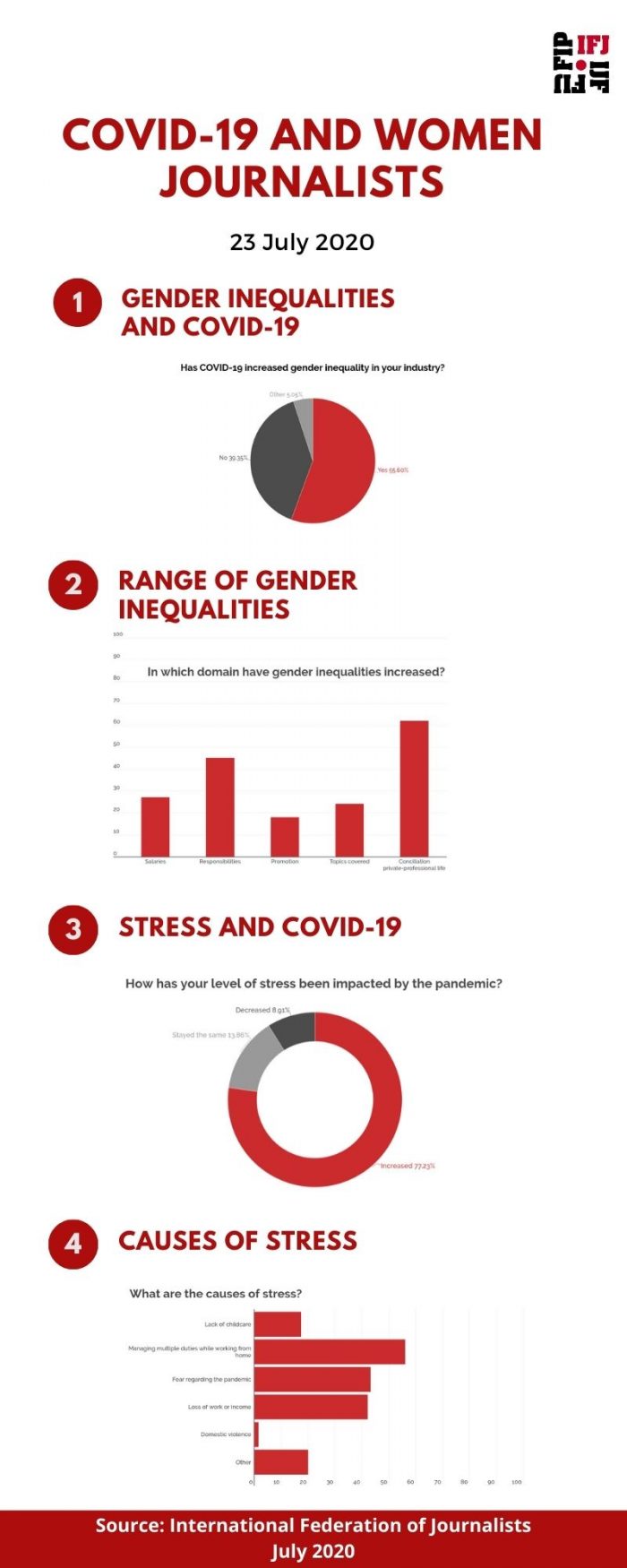The results of a survey by the International Federation of Journalists have led the organization to call on news organizations to prioritize gender equality as they address the effects of the pandemic.
IFJ surveyed 558 female journalists from 52 countries between June 19 and June 30 and found that stress increased for 77 percent of respondents. About 59 percent said the pandemic has affected their health, the main problem being with sleep (69.8 percent).
The main causes of stress were managing multiple responsibilities while working from home (56 percent), fear regarding the pandemic (43.2 percent), loss of work or income (42 percent), and lack of childcare (17.32 percent).
The inequalities increased in four areas: work/life balance, responsibilities, salaries, and in topics covered.

“In every heterosexual couple I know the woman has borne the brunt of the situation,” one journalist from Spain said. “Women are working from home, juggling childcare and educating children alongside their job. Some have taken reduced hours to cope with this, others have had to risk their vulnerable parents’ health for childcare instead of the father taking on anywhere near half of these duties.”
Sixty-seven percent said they felt that the industry’s efforts to improve gender equality would be impacted by news organizations’ operating under tighter budgets.
“Cutting funds always leads to more inequality, along gender, race, and class lines,” one respondent said.
“The more unstable and underpaid an industry is, the less understanding,” said another.
The respondents agreed that achieving gender equality in pandemic times should focus on more funding, better salaries, and opportunities for career advancements.
Read the full findings here.
COVID-19 has increased gender inequalities in the media, @IFJGlobal survey finds.
An IFJ survey of over 500 women journalists in 52 countries has revealed that over half of women journalists have experienced increased gender inequalities due to #COVID19.https://t.co/rwP8RAk14c
— GFMD (@MediaGFMD) July 26, 2020
Yet more bad news for women in relation to the impact of Covid-19. https://t.co/5NcDOKQare
— Agemi.eu (@Agemi_eu) July 23, 2020
La encuesta de la FIP revela que más de la mitad de las mujeres periodistas ha experimentado un aumento de las desigualdades de género debido a COVID-19: @IFJGlobal @etica https://t.co/pi80WjBDAE
— Juan Manuel Alegría (@yaguer_yaguar) July 26, 2020
Leave a comment